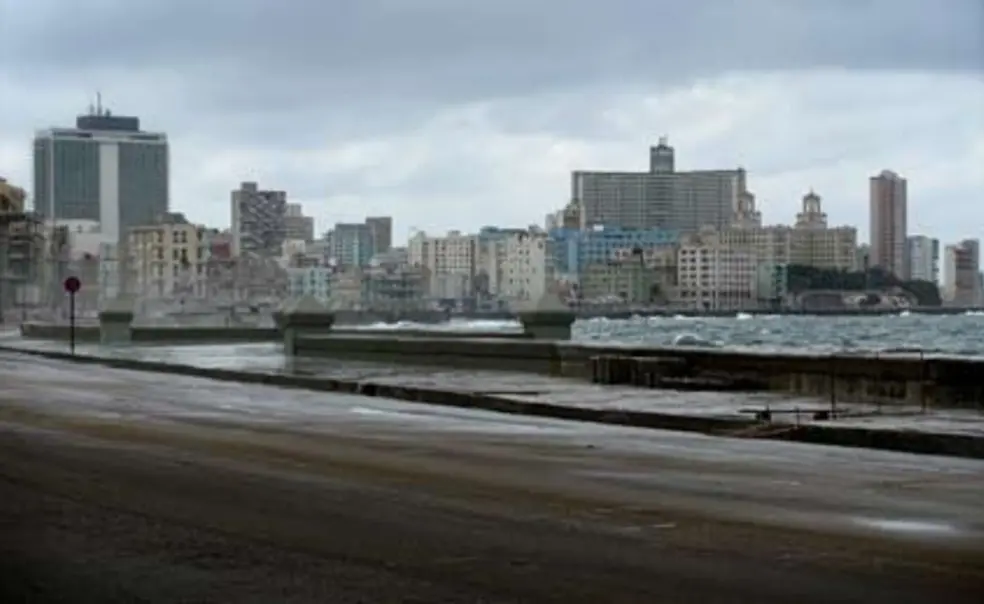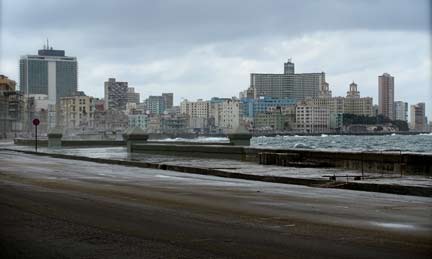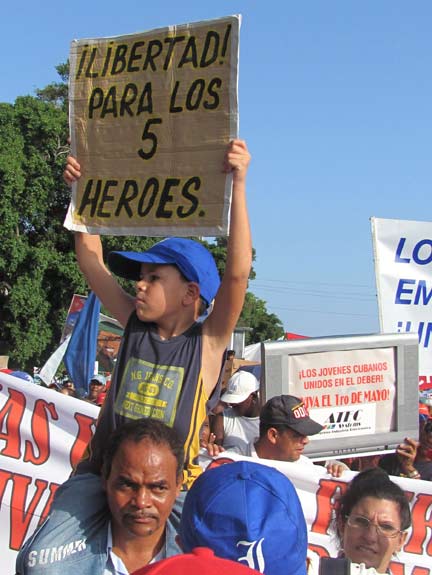Student snapshots from a semester in Cuba
The Havana skyline. |
 Max Branzburg ’11 with Pablo, a young Cuban friend. |
By Giri Nathan ’13
(Photos courtesy Bryan Locascio ’11)
Nine juniors recently returned from a unique semester abroad, marking the end of the Woodrow Wilson School's first ever task force in Cuba. Based at the University of Havana, the students researched population and development issues, took local courses, and absorbed the cultural nuances of this very different nation.
The task force was held at the university's Centro de Estudios Demografico (CEDEM), and according to Dean Nancy Kanach, director of the Office of International Programs, the CEDEM staff was "very impressed with the Princeton students." Under the staff's guidance, the students were free to examine a variety of demographic policy issues.
"My research focused on the legal protection of maternity in Cuba," said participant Bryan Locascio ’11. "I looked at Cuba's parental leave and child care policies against progress that has been made internationally. Chi [Anunwa ’11] examined Cuba's remittance policies and their effects on racial stratification. Max [Branzburg ’11] studied national disaster policy and the steps that Cuba and the United States could take to coordinate their efforts in this regard."
Researching in Cuba had its quirks, according to Locascio. He cited limited Internet access and local library policy (books cannot be checked out) as small challenges, and then pointed to a broader ideological obstacle.
Cubans hold posters at a protest against U.S. policy. |
 Locals say hello to the Princeton students. |
"The influence of the government here makes a researcher very conscious of bias in ostensibly academic works. Authors in Cuba may feel pressured to express tacit or implicit support for the country's political institutions," he said.
Adjustments were not limited to the academic realm. Students found that living in a communist Cuba posed social challenges as well, given the deep-seated political tensions. (The University had to navigate some legal intricacies just to organize the program, as Wilson School professor Stanley Katz mentioned in a December interview with The Daily Princetonian.)
Kanach described the University of Havana as "very welcoming," but this was not the case with all locals. Locascio remarked that he had never been made more aware of his U.S. citizenship. Still, he attested to making some "strong and deep" friendships. The students, Kanach added, found their Cuban counterparts to be "highly educated and cultured."
"On the whole," Locascio said, "the demography task force was a wonderful opportunity to view some of the revolutionary government's more notable accomplishments -- the drop in infant mortality, surge in literacy rates, and the growth in life expectancy -- while attaining a realistic and multifaceted view of the challenges confronting the country as it moves forward."












No responses yet